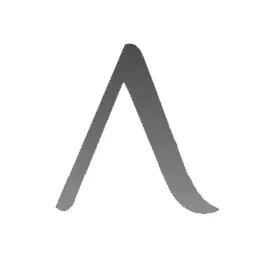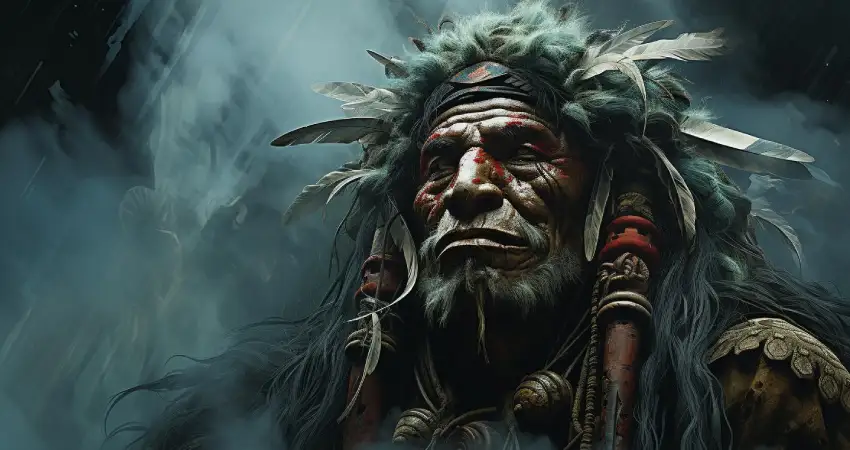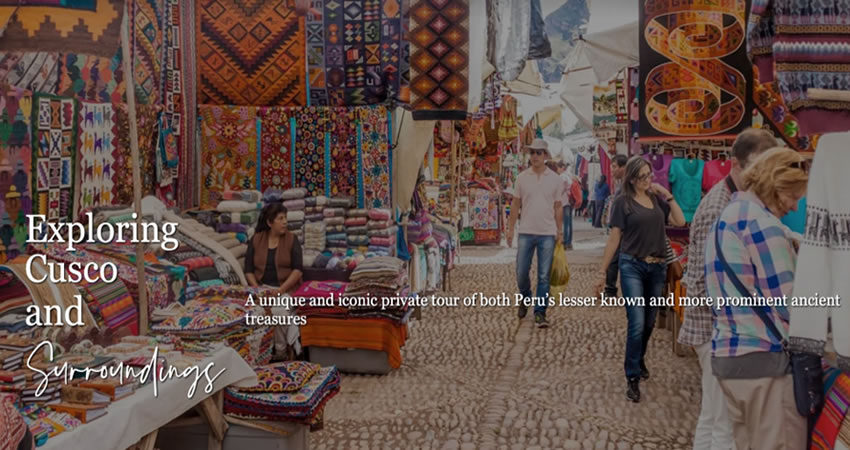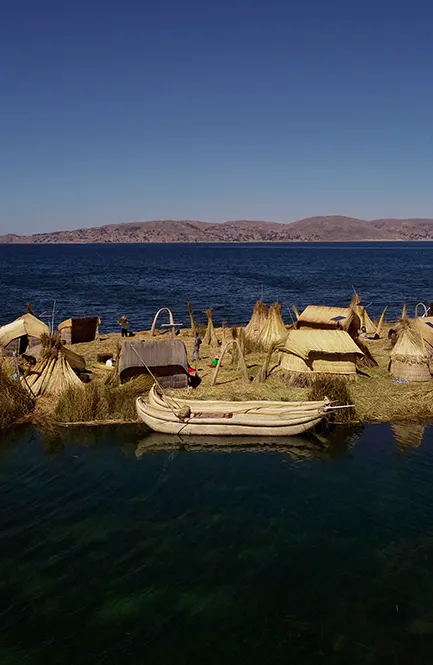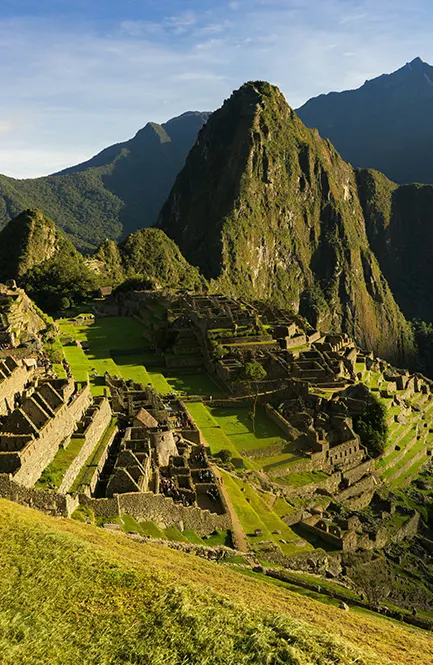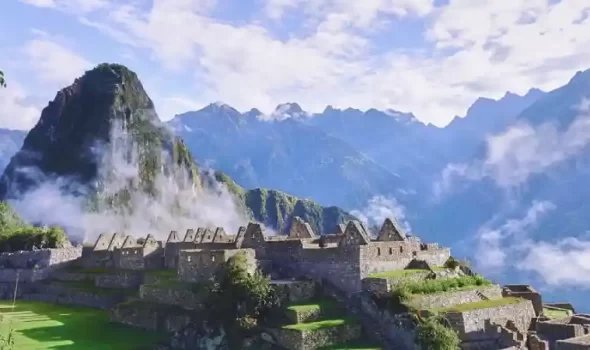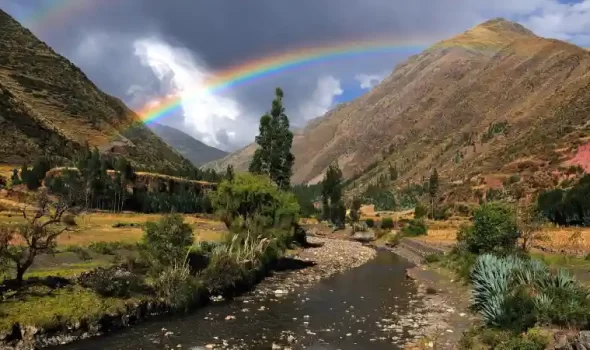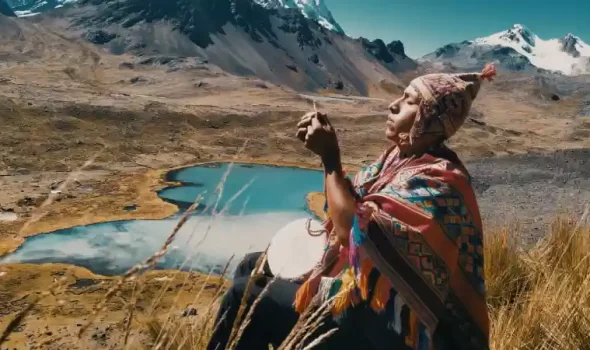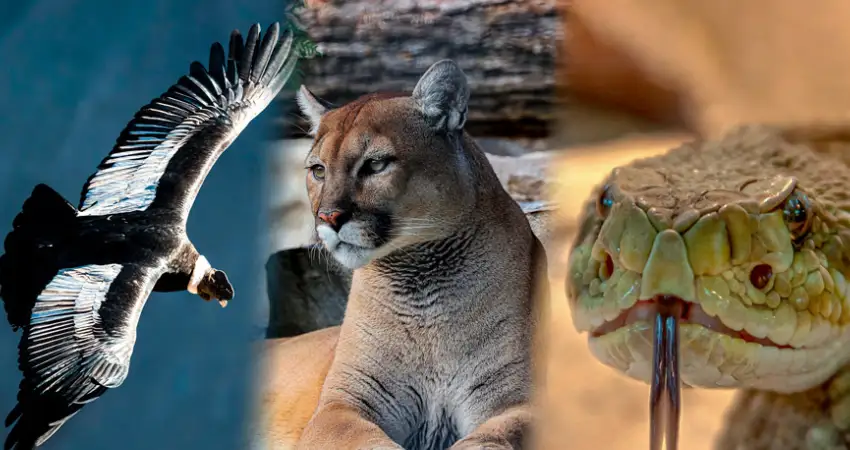
1.- INTRODUCTION TO INCA RELIGION
The whole Inca culture based many of their actions and activities around a religious sense, their belief was the most important aspect and as such they believed in many gods so the whole culture was polytheistic. Of course there was a main god, the Inca Sun God and then derived other Inca Gods such as the mountains, rainbows, lightning and many others that were represented by actions of nature.
Their mythology was closely linked to their daily life and any decision taken by the Inca sovereign was related to religion. During the golden moment of this culture, the Inca Empire Gods were worshiped not only by the people but also by the nearby villages that were conquered, it was a superposition of ideologies in which the subdued people had to choose between worshiping the Inca Gods and mainly the Inca Sun God in exchange for their Idol (God) to be retained in an enclosure and respected or simply that the Idol was destroyed thus representing the death of their faith.
Of course, the Inca Gods were not only representations or inanimate objects of nature, they could also be represented in animals such as the puma, the snake, the condor and others, which could have human behaviors that allowed them to feel love, hate, compassion and empathy. In many Andean ceremonies and rituals the Andean priest used certain hallucinogenic plants that allowed him to enter into a deep trance in which he was able to interpret the will of the Inca Empire Gods.
2.- MAJOR INCA GODS AND GODDESSES
2.1.- Viracocha: The Creator God
Among all the Gods of the Incas, he was considered as the creator god of all that existed, also known as Wiracocha was represented as a very old man who had long hair and wore an outfit made with alpaca wool. He is credited with the creation of all things and living beings, he brought light, knowledge and more, as in other cultures it was believed that he as well as other Inca Gods would return to bring prosperity and peace.
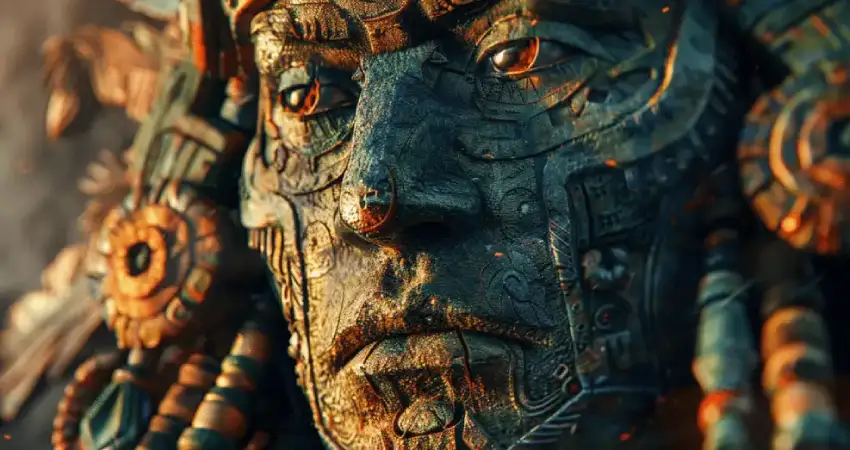
In the same way that enclosures were built for the other Inca Gods, temples and sanctuaries were also built to venerate the god Viracocha where ceremonies were performed with offerings and sacrifices to earn his blessing, in many of the Andean villages and communities still have the respect and tradition to continue worshiping him on a daily basis.
2.2.- Inti: The Sun God
Among all the Inca Gods, the Inca Sun God is undoubtedly the most important according to the Andean cosmogony. In the Inca religion he was the son of Viracocha and is the one who gave light and life, this cult was given mainly in Cusco which was the capital of the Inca empire. He was represented mainly as a golden disc from which emanated rays with some human features. Its red and yellow colors represented heat, light and life but the one that stood out was the golden one, for this reason gold was attributed as his tears or blood, so it was a material appreciated more in religious than commercial themes.
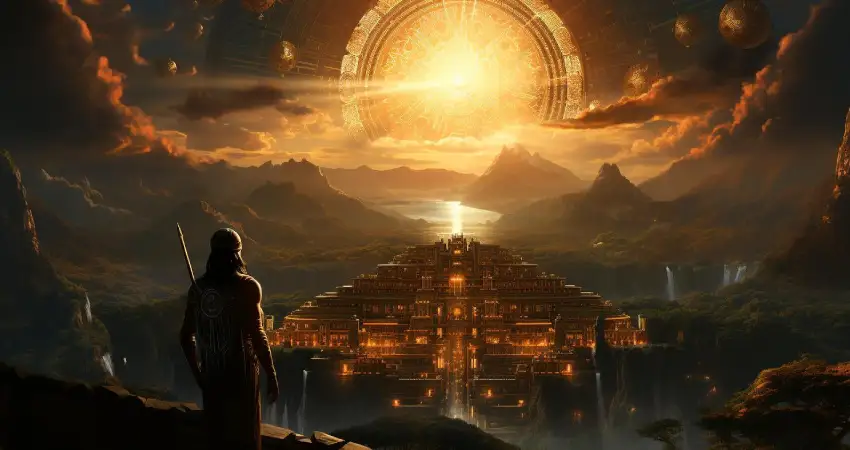
Such was the belief in the Inca Gods that festivals and celebrations were attributed to honor them, this is how the Inti Raymi is also performed, which is the festival dedicated to the sun god in which offerings accompanied by dances and music are given, this celebration is still held every June 24 of each year, this coincides with the winter solstice.
In many places it is attributed temples and enclosures to worship him, however the most important is undoubtedly the Qoricancha, the temple of the sun that is built in the city of Cusco. This temple was made with the specific purpose of attributing many of the ceremonies to the sun god and in some small spaces also to other Gods of the Incas that accompany him as the moon, the stars and more.
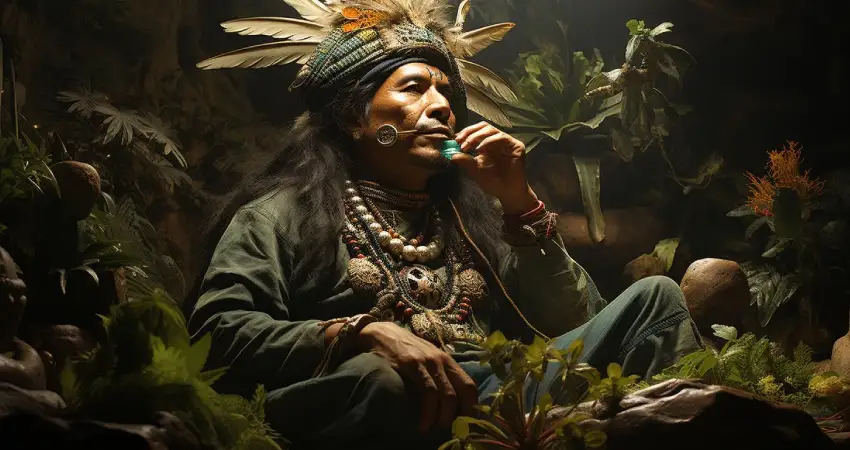
2.3.- Mama Quilla: The Moon Goddess
Mama Quilla was the representation of the Moon Goddess, venerated as the wife of the Inca Sun God. She was entrusted with sacrifices and offerings for the fertility of the land to increase agricultural production by helping crops grow more and also that newborns have health. Like the Inca Sun God, it was attributed that the silver metal was the representation of his tears or blood so many unique pieces were made from it.
His main temple is built in the same space of the temple of the sun in Cusco, inside the Qoricancha you can see an enclosure for his worship as well as his daughters the stars.
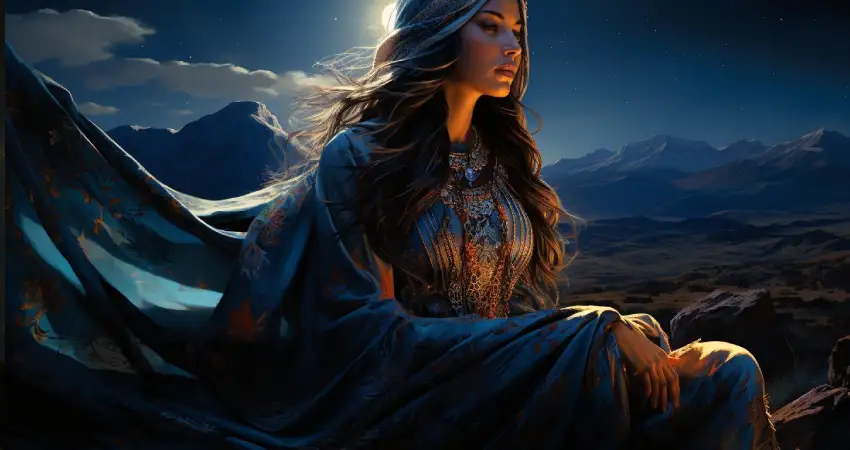
2.4.- Pachamama: Mother Earth
For the Andean belief the Pachamama or Mother Earth is to this day the source of all life, according to the Andean Cosmogony this is present in mountains, rivers, lakes and everything related to her feminine image that connects all people, animals and living beings, provides food, materials and sustenance of life.
It is also believed that if there is a respectful treatment to the Pachamama, it is she herself who rewards them by providing everything necessary, this belief has been inherited by generations until today in which even offerings and ceremonies are made to express this respect. The main day of this takes place every August 1st, when the earth has its festivity and all the people of the Andes participate in it.

2.5.- Illapa: The Weather God
This is one of the inanimate Inca Gods that belongs to nature, it is said that Illapa or God of Thunder is who controlled all meteorological anomalies, from rains to hail and was a very important religious factor for agriculture, It is for this reason that many people of the Peruvian Andes offered offerings as a sacrifice to Illapa so that he would feel relieved and provide a good proportion of rain on a particular sector making food production is greater, on the contrary if he was not at ease he sent hail that in many cases spoiled the harvest.
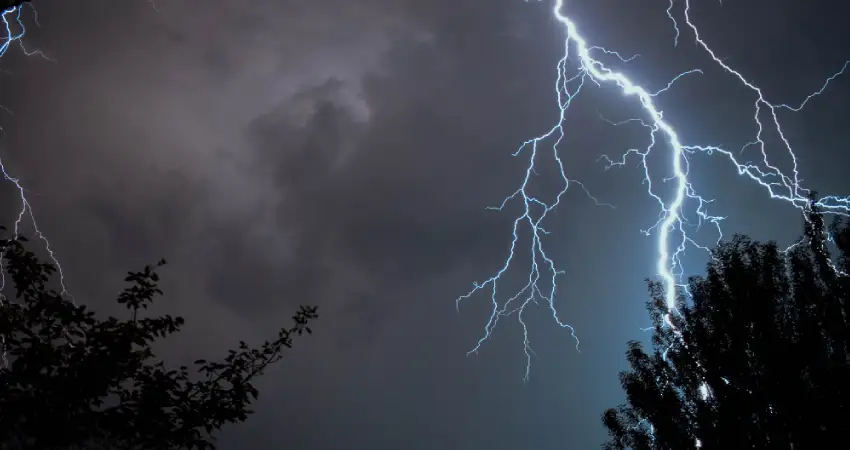
3.- LESSER-KNOWN INCA GODS
3.1.- Supay: God of Death and the Underworld
For the Inca culture death was just another step in life, in reality it did not exist as such since it was believed that beyond life there was another existential plane and the guide to take people there was the god Supay. This is the reason why when an important personage of the Inca civilization died as a nobleman or the Inca himself, he was mummified and buried with riches since it was thought that in the afterlife he would need it.
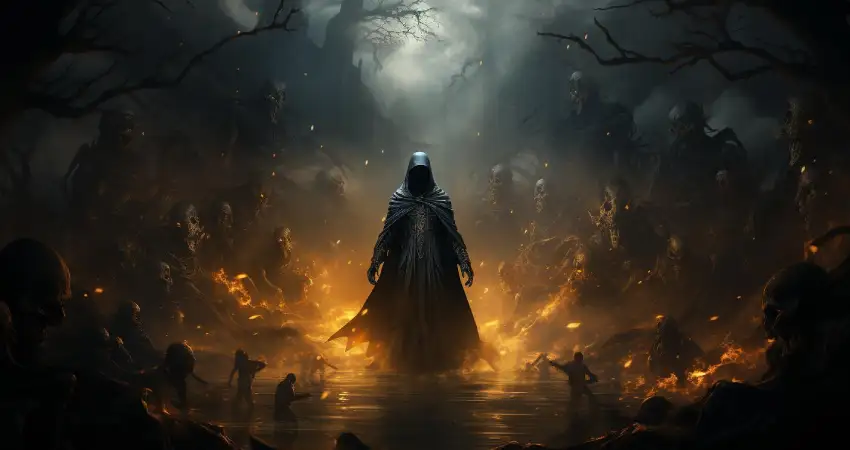
4.- INCA MYTHOLOGY AND LEGENDS
All the Inca Gods belong to the Andean belief that was initially influenced by the Tiahuanaco culture, even the origin of the culture itself is narrated from the fall of this previous culture because of a flood, from this flood 2 brothers and husbands at the same time came out of its waters, Manco Capac and Mama Ocllo, who had a mission entrusted by the Inca Sun God, to carry a gold bar through a path to find a land that would serve as the new starting place for a new civilization.

This is how this couple set out on a path until they reached what is known today as Cusco, during their journey they made many people join the cause and this generated the original people of the Incas, the Quechuas. Their religion was polytheistic in which they believed in multiple gods and all oriented to nature.
| “One visit is never enough” |
5.- ANDEAN COSMOGONY: THE ANDEAN BELIEFS
“There are 3 existential planes within the Andean belief, first the upper world also known as Hanan Pacha represented by the Condor, the middle world known as Kay Pacha represented by the Puma and the underworld or Uku Pacha represented by the Serpent, together they form what is known as the Andean trilogy.”
6.- FAQs for Travelers
- Can tourists participate in traditional ceremonies?
Yes, the most common ceremony in which travelers participate is the offering to the Pachamama, in which with the guidance of an Andean priest a ritual is conducted to ask for health, good luck, work or just to thank for what you have. This usually takes place in the month of August, the rest of the year only if there is a previous coordination.
- Are there any taboos to be aware of when visiting sacred sites?
Yes, when visiting some places it is believed that the land is virgin, that is to say that nobody has stepped on it before and it is common to hear how some local people indicate that before entering that space you must ask permission to the Apus or mountains so that there is no health problem nearby.
- How can I learn more about Inca gods during my trip to Peru?
The modalities of tourism are very varied but if your intention is to learn more about the Inca Gods then mystical tourism is the ideal option, this type of tourism is to learn more about the culture, history and how it developed. For this you need a guide specialized in this type of information and Auri Peru can provide it under request.
- Are there any festivals related to Inca gods that I can attend?
Yes of course, the most important is the festival of Inti Raymi in which the sun god is honored on June 24 of each year, then there is the ceremony to the Pachamama that takes place on August 1 and others of equal importance.
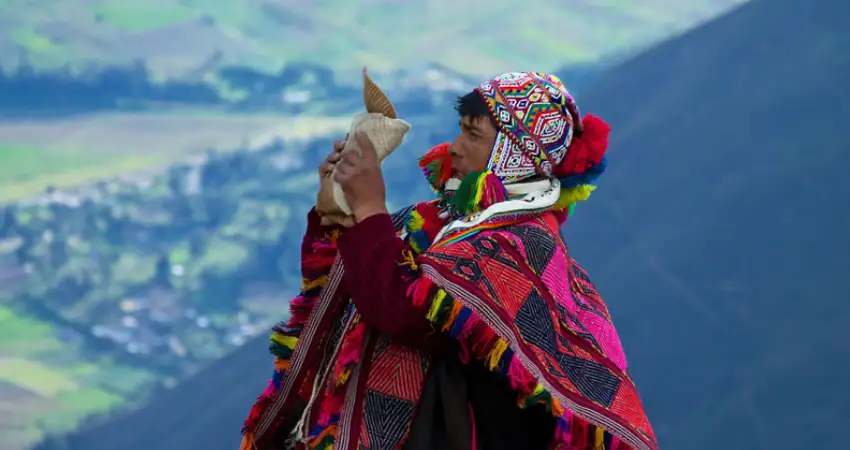
The most beautiful thing about this is that the Andean culture and beliefs are still alive, you can still enjoy unique and incredible places where you can observe the worship of the Inca Gods and you can be part of this. Auri Peru includes these mystical experiences in your 2024 trip, just contact us now and find out how to take the first step of this experience.
“Travel is not a question of money, but of courage.”
